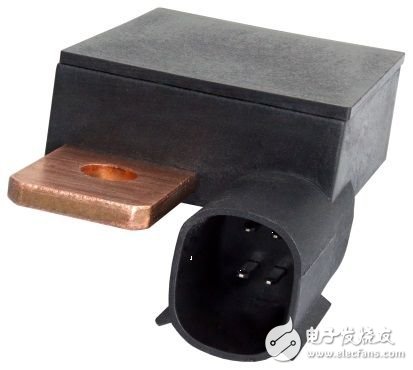Summary This article describes how Smart Battery Sensors (IBS) can help maintain proper battery performance, highlighting the use of resistive sensors and explaining their related functions in automotive applications. This article also presents a practical test of IBS devices and laboratory tests to confirm their accuracy. The article also describes how IBS devices can be used in automotive applications, discuss their utility in renewable energy, and compare them to other battery monitoring technologies. introduction Hyundai Motors need to further increase efficiency to meet future fuel economy standards. This efficiency gain is closely related to the innovation of automotive electrical systems. These technological innovations cover many areas, such as start-stop, wire-driven and line-controlled systems. But these new technologies have one big drawback, which is that they all rely on the same component of the electrical system: lead-acid batteries, which have not been much innovative since the 1950s. Proper battery management will be key to supporting future design innovations, which can be achieved with Intelligent Battery Sensors (IBS). The IBS unit provides accurate and on-demand measurements of the battery's current, voltage and temperature (IVT). Accurate “charge state†and “health state†calculations are based on measurement information to ensure that the electrical system operates at peak efficiency. Figure 1. Smart battery sensor IBS Overview IBS is a complete measurement system for lead acid battery management. These components measure the charge or discharge current flowing through the battery, the voltage between the battery terminals, and the temperature of the battery (by measuring the thermal conductivity between the battery post and the IBS unit itself). These three measurements are performed almost simultaneously to ensure measurement accuracy (even under rapidly changing conditions). The IBS can use the LIN communication protocol to send these measurements to the car's electronic control unit (ECU) or other control system. LIN is a reliable communication protocol for the automotive environment with excellent noise tolerance. The LIN bus is available on most new products or can be easily developed with a simple microcontroller (when using IBS in other automotive or non-automotive applications). The IBS unit should be able to accommodate a full range of vehicle operating conditions. For example, operating temperatures from –40°C to +115°C make it suitable for working conditions that can even damage the latest and most advanced lead-acid batteries. In addition, the high operating voltage range allows the IBS unit to continue to retrieve data under battery overcharge and undercharge conditions. It should also be able to monitor the complete current range with minimal loss of accuracy over both extreme and minimum voltage and temperature ranges. IBS accuracy The heart of IBS is a shunt designed to sense battery current. The reliability of IBS's precision internal electronic components should be sufficient to accommodate the requirements of operating in the under-hood environment of modern automobiles and to maintain accuracy in sensing the pressure drop across the shunt. The IBS and integrated electronics must accommodate all 12 V vehicle starting currents while limiting the error maximum to 0.5% (±30 mA deviation) over the entire measurement and battery temperature range. In addition to current sensing capability, another advantage of IBS is that both the battery temperature sensor and the voltage sensor are included in one device. So, for example, we assume that the IBS voltage measurement accuracy is ± 50 mV over a voltage range of 4 V to 18 V and the entire battery operating temperature range, while the battery temperature sensor has a maximum error of 3 ° C at the outer edge of the entire temperature range. The upper limit of the temperature range of lead-acid batteries is usually +60 ° C, and the actual lower limit during operation is not less than 0 ° C. In these actual temperature ranges, the temperature error of our example IBS does not exceed 1 °C (see more information in Figure 2 below). This accuracy is sufficient to set the shutdown warning and define the current limit of the battery under all operating conditions. Including all of these sensors in one device eliminates the need for additional sensors or other systems for retrieving this information, helping to avoid cost increases. All measurements are returned as a single packet over the LIN bus, ensuring that the IBS provides accurate, real-time and associated measurements of all battery parameters. Figure 2. Example of IBS details
So happy to know that 11th laptop is ranking the No.1 position in 2022 custom market. You can see intel core i3 11th generation laptop,Gaming Laptop i5 11th generation, laptop price i7 11th generation, etc. At this store. Maybe you will ask why 11th gen gaming laptop is so popular and welcome, mainly reason is its competitive cost and high performance. Intel i7 11th Generation Laptop cost is similar as intel i7 10th gen laptop, but performance is much better than 10th one. Besides, 12th laptop is arriving in lot at the end of 2022 at custom laptop market, price is will much competitive at that time.
Whom this Gaming Laptop is more suitable to? Of course, heavier tasks workers, no matter office jobs, education tasks, or others. However, if your clients focus more powerful cpu and performance, i7 16gb ram 4gb graphics laptop or 15 Inch Gaming Laptop with 10th cpu and 2GB graphics also alternatives.
You can contact us directly to get get right and valuable information fast. Will try our best to support every clients no matter quantity you take.
11th Laptop,Intel Core I3 11th Generation Laptop,11th Gen Gaming Laptop,Gaming Laptop I5 11th Generation,Laptop Price I7 11th Generation Henan Shuyi Electronics Co., Ltd. , https://www.shuyilaptops.com
